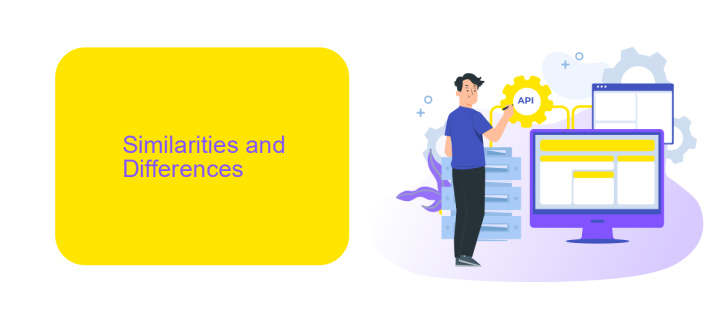Appian Vs Appium
In the rapidly evolving landscape of software development and automation, choosing the right tools can significantly impact project success. This article delves into a comparative analysis of Appian and Appium, two prominent platforms in their respective domains. While Appian excels in low-code automation for business processes, Appium stands out as a versatile tool for mobile app testing. Let's explore their features, strengths, and ideal use cases.
Introduction
In the rapidly evolving world of technology, automation tools play a crucial role in enhancing productivity and efficiency. Appian and Appium are two such tools that have gained significant traction in recent years. While Appian is renowned for its ability to streamline business processes through low-code automation, Appium excels in mobile application testing, enabling developers to ensure the quality and performance of their apps across different platforms.
- Appian: A low-code automation platform designed to optimize business processes.
- Appium: An open-source tool for automating mobile application testing on various operating systems.
- ApiX-Drive: A service that facilitates seamless integration between different applications and services, enhancing the functionality of both Appian and Appium.
Understanding the strengths and use cases of both Appian and Appium can help businesses choose the right tool for their specific needs. Whether it's automating complex workflows with Appian or ensuring robust mobile app performance with Appium, leveraging the right technology can drive significant improvements. Additionally, integrating these tools using services like ApiX-Drive can further enhance their capabilities, providing a more cohesive and efficient workflow.
Similarities and Differences

Appian and Appium are both powerful tools in their respective domains, but they serve different purposes. Appian is a low-code automation platform that allows businesses to build applications quickly with minimal hand-coding. It focuses on streamlining business processes and integrating various systems to enhance productivity. On the other hand, Appium is an open-source automation tool designed specifically for testing mobile applications, both Android and iOS. It supports multiple programming languages and allows for cross-platform testing, making it a versatile choice for developers.
Despite their differences, both Appian and Appium share some commonalities. They both aim to improve efficiency and reduce manual effort in their respective areas. Additionally, both platforms can benefit from integration services like ApiX-Drive, which facilitates seamless data flow between different applications and systems. This integration capability can enhance the overall functionality and effectiveness of both tools, enabling businesses to achieve their goals more efficiently.
Use Cases

Appian and Appium serve different purposes and cater to distinct use cases in the software development lifecycle. Appian is primarily used for building enterprise-level applications with a focus on business process management and automation. It is highly suitable for organizations looking to streamline their operations and integrate various business processes into a unified platform.
- Appian: Ideal for creating complex workflows and automating business processes, making it suitable for industries like finance, healthcare, and manufacturing.
- Appium: Best suited for mobile application testing, allowing QA teams to automate testing across different mobile devices and platforms.
- ApiX-Drive: Useful for integrating various applications and services, enabling seamless data flow and automation between different systems without requiring extensive coding knowledge.
While Appian excels in enterprise application development and process automation, Appium is a robust tool for mobile app testing. ApiX-Drive complements both by offering integration capabilities that can connect multiple applications and automate workflows, enhancing overall efficiency and reducing manual efforts. Each tool serves a unique purpose, and their combined use can significantly optimize both development and operational processes.
Pros and Cons

When comparing Appian and Appium, it's essential to weigh their strengths and weaknesses to determine which tool better suits your needs. Appian excels in its low-code automation capabilities, making it ideal for business users looking to streamline workflows without extensive coding knowledge. On the other hand, Appium is a robust tool for mobile app testing, providing comprehensive support for various platforms and languages.
However, both tools come with their own set of challenges. Appian's low-code environment may limit customization for more complex projects, while Appium's setup process can be time-consuming and requires a higher level of technical expertise.
- Appian Pros: Easy to use, rapid development, strong integration capabilities with services like ApiX-Drive.
- Appian Cons: Limited customization, potentially higher costs for advanced features.
- Appium Pros: Comprehensive mobile testing, supports multiple languages and platforms, open-source.
- Appium Cons: Complex setup, requires technical expertise, slower execution times for tests.
Ultimately, the choice between Appian and Appium depends on your specific needs. If you prioritize ease of use and rapid deployment, Appian is the way to go. For thorough mobile app testing, Appium is the better choice despite its steeper learning curve.
Conclusion
In conclusion, both Appian and Appium serve distinct purposes and excel in their respective domains. Appian is a robust low-code automation platform designed to streamline business processes and enhance productivity through rapid application development. On the other hand, Appium is a versatile open-source tool specifically tailored for mobile application testing, offering comprehensive support for various platforms and languages.
When choosing between Appian and Appium, it is essential to consider your specific needs. For businesses looking to automate and optimize their workflow, Appian provides a comprehensive solution with its low-code capabilities. Conversely, for organizations focused on delivering high-quality mobile applications, Appium stands out as an invaluable tool for cross-platform testing. Additionally, integrating these tools with services like ApiX-Drive can further enhance their functionality, allowing seamless data transfer and process automation, thereby maximizing efficiency and performance.
- Automate the work of an online store or landing
- Empower through integration
- Don't spend money on programmers and integrators
- Save time by automating routine tasks
FAQ
What are the primary differences between Appian and Appium?
Can Appian be used for mobile application testing?
Is it possible to integrate other applications with Appian?
Can Appium automate web applications?
What are some common use cases for Appian?
Strive to take your business to the next level, achieve your goals faster and more efficiently? Apix-Drive is your reliable assistant for these tasks. An online service and application connector will help you automate key business processes and get rid of the routine. You and your employees will free up time for important core tasks. Try Apix-Drive features for free to see the effectiveness of the online connector for yourself.


